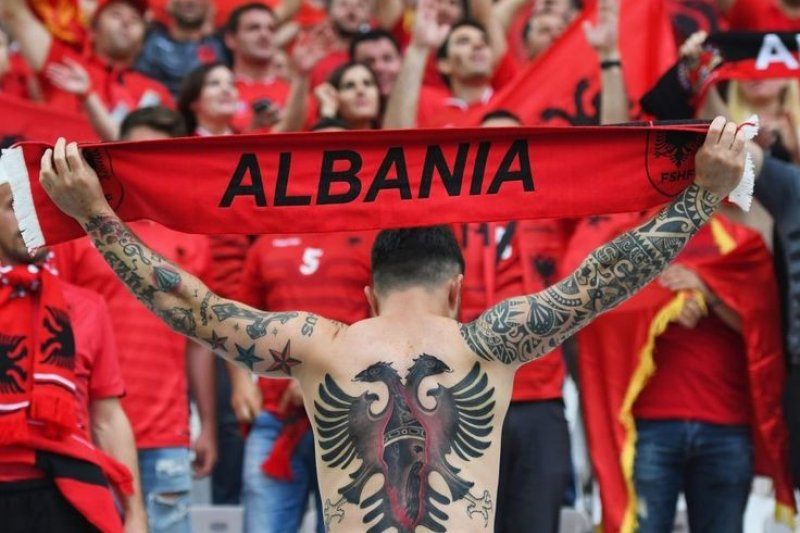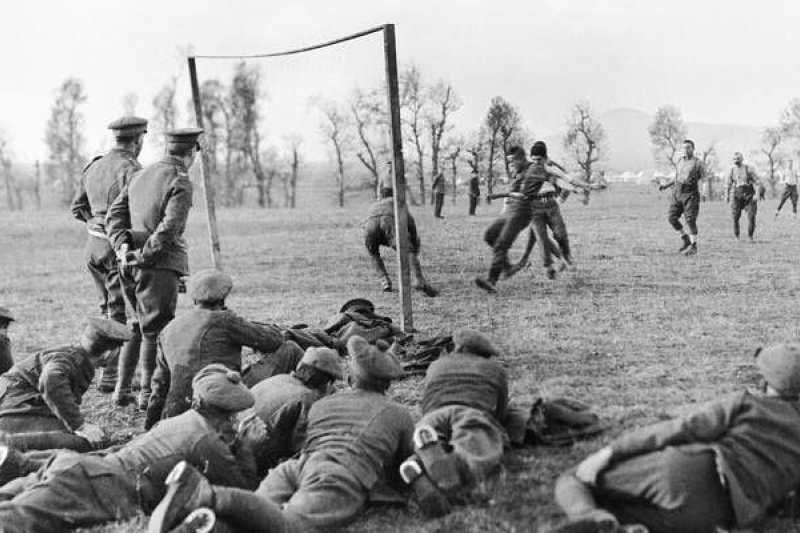The Power of Football Diplomacy: Transforming Nations, Uniting Cultures
In an era marked by global connectivity and dynamic cultural exchanges, but also by crises, conflicts and wars sports and football diplomacy has emerged as a potent tool for nations to foster international relations and project soft power on the global stage. The intersection of sport and diplomacy has become increasingly trendy and pertinent today due to its unparalleled ability to transcend political, national, racial and religious boundaries differences, unite diverse cultures, and engender a sense of shared identity among nations.
Football, often hailed as the world's most popular sport, possesses a unique capacity to captivate millions across continents, regardless of language, creed, or nationality. This universal appeal forms the cornerstone of football diplomacy, as it provides nations with a common platform to engage in peaceful competition and exchange. Smart countries strategically leverage their football achievements as a means to enhance their diplomatic standing and strengthen bilateral ties.
Football has a rich history of playing a significant role in diplomacy and international relations. They are multiple examples of how sports and football has been used to promote diplomacy, normalize diplomatic relations among big countries and elevate the image of small countries as well.
They are a lot of examples how football success can serve as a crucial element of diplomacy. The FIFA World Cup, arguably the most prestigious tournament in football, offers nations a global stage to showcase their prowess and promote their national image. Host countries invest heavily in infrastructure and hospitality to welcome teams and fans from around the world, fostering goodwill and international cooperation. Additionally, football matches often serve as diplomatic opportunities for leaders to engage in informal diplomacy and build personal relationships on the sidelines of the green field. More and more often, we see heads of state and government, cock-a-hoop in the VIP lounges of the final matches or in the opening or closing ceremonies of the games, not only taking selfies, but also talking to each other, why not, also about things outside of the game.
While not directly related to football, the concept of "Ping Pong Diplomacy" highlights the power of sports in fostering diplomatic relations. In 1971, during the height of the Cold War, a series of table tennis matches between the United States and China paved the way for diplomatic normalization between the two countries. The friendly exchanges on the sporting field led to increased dialogue and eventually facilitated President Richard Nixon's historic visit to China, marking a significant thaw in Sino-American relations.
The Christmas Truce has become one of the most famous and mythologized events of the First World War when British and German soldiers, abandoned their trenches for playing football in no-man's land. Late on Christmas Eve 1914, men of the British Expeditionary Force (BEF) heard German troops in the trenches opposite them singing carols and patriotic songs and saw lanterns and small fir trees along their trenches. Messages began to be shouted between the trenches. The following day, British and German soldiers met in no man's land and exchanged gifts, took photographs and some played impromptu games of football. They also buried casualties and repaired trenches and dugouts. Football matches were played in at least three or four places between troops from the opposing armies. A letter attributed to a British army doctor, published in The Times on January 1 1915, explained how "a football match [was] played between them and us in front of the trench". Another story, from the German side, suggests that a game was played between the 133rd Royal Saxon Regiment and Scottish soldiers, which the Germans won 3-2.
One of the dedicated sculptures, financed by the “Football Remembers” project, was unveiled at the National Memorial Arboretum by Prince William, in the century anniversary of the Christmas Truce, (2014) together with UEFA with the participation, among the others, of Wayne Rooney, Philipp Lahm and Gareth Bale.
The joint hosting of the 2002 FIFA World Cup by South Korea and Japan showcased the power of football to promote cooperation and reconciliation between two countries with a history of strained relations. The tournament provided a platform for both nations to demonstrate their organizational prowess, hospitality, and cultural heritage to the world. The event helped to foster greater understanding and friendship between South Korea and Japan, laying the groundwork for improved diplomatic ties in the years that followed.

In a historic gesture, Armenian President Serge Sarkisian invited Turkish President Abdullah Gul to watch the World Cup qualifying football match between the national teams of the two countries with the aim of fostering a breakthrough in relations between Armenia and Turkey. President Gul went to Armenia to watch the football match as a goodwill gesture on 6 September 2008, which became the first round of the so-called “football diplomacy” between the two troubled neighbors. Only one year later the Armenian president paid a visit to Turkey's northwestern Bursa province to join president Gul at the second-leg of the World Cup qualifier, which Turkey again won 2-0. This meeting was regarded the latest round in the "football diplomacy."
In 2006, the Ivory Coast national football team qualified for the FIFA World Cup for the first time in its history. Despite being a relatively small country, the team's participation generated widespread attention and pride both domestically and internationally. The success of the team served as a unifying force for the country, which was experiencing political instability at the time. The Ivorian government capitalized on the football team's achievements to promote a positive image of the country and attract investment and tourism.
Croatia's remarkable achievements by reaching quarter-finals of the UEFA European Championship twice (1996, 2008), third place in the FIFA World Cup (1998, 2022), the final in FIFA World Cup (2018), and finished second in the UEFA Nations League in 2023 captured the imagination of football fans worldwide. Despite being a small country with a population of just over four million, Croatia's success on the football pitch garnered significant attention and admiration. The team's achievements served as a source of national pride and unity, transcending political divisions within a country, just leaving behind the bloody Balkan war. Croatia's footballing success also boosted its international profile, attracting positive media coverage and showcasing the country's rich cultural heritage, tourist attractions and hospitality to a global audience.
The historical membership of Kosova into UEFA in May 2016 marked a significant diplomatic achievement for the country and had a notable impact on its international reputation and recognition. It signaled a recognition of Kosova's sovereignty and statehood by the European football community, which was subsequently acknowledged by other international bodies and governments. The first official match against Finland in 5 September 2016 for the 2018 FIFA World Cup qualifying competition allowed Kosova’s national football team to compete against top European teams, demonstrating its competitiveness and skill on a global scale.
Football matches and tournaments became opportunities for cultural exchange and dialogue, fostering mutual understanding, building bridges between Kosovo its neighbors, and other European countries and facilitated greater diplomatic engagement and cooperation between them. The admission of Kosova into UEFA not only enhanced its international reputation as a legitimate member of the European community but also contributed to diplomatic efforts aimed at promoting peace, stability, and integration in the region.
For small countries like Albania, whose national football team was qualified for the second time in European Championship, the impact of such achievements extends far beyond the realm of sports. Football success not only boosts national morale but also elevates the country's profile on the international stage. As Albania competes this year in Germany against football powerhouses in the group of Euro 2024, like Italy, Spain and Croatia, its performance becomes a source of pride for its citizens and a symbol of resilience and excellence for the world to witness.
Albania's qualification for Euro 2024 holds immense significance for the country on several levels. Overall, football diplomacy surrounding Albania's qualification for Euro 2024 presents numerous advantages that extend beyond the green field and sporting realm, benefiting the country socially, economically, and diplomatically.
It provides a golden opportunity for Albania to showcase its footballing talent and competitive spirit on the international stage. Qualifying for a major tournament like the UEFA European Championship brings national pride and unity, as citizens rally behind their team and celebrate their achievements.
Albania's participation in Euro 2024 offers an opportunity to enhance its international image and reputation. Football tournaments attract widespread media coverage and global attention, allowing Albania to promote its culture, tourism, and hospitality to a wide audience. Positive portrayals of Albania during the tournament can help counter negative stereotypes and misconceptions, presenting the country in a more favorable light to the rest of the world. We are all witnesses of how global media was fascinated by the beautiful pictures, images and behaviors of Albanians fans in the stadiums and streets of France during Euro 2016.
Football diplomacy can serve as a powerful tool for strengthening ties between a country and its diaspora, fostering a sense of belonging, unity, and pride among diaspora communities worldwide. Diaspora communities often gather to support their national team during major tournaments, fostering a sense of celebration and connection to their homeland.
Additionally, the success of the Albanian team in EURO 2024 can elevate the country's global visibility and reputation, positively influencing how Albanians are perceived in the countries they are living in. This can lead to increased respect and recognition for Albanian culture and identity within diaspora communities, as well as among the broader international community.
Furthermore, Albania's qualification for Euro 2024 can have not only positive socio-economic impacts. Additionally, success on the football pitch can inspire the younger generation encouraging participation in sports and promoting healthy and social lifestyles in the area of flooding, individualism and digital isolation. Football has the magic to keep children away from vices and street crimes, drugs, tobacco and alcohol, and social and physical inactivity and obesity.
Moreover, from a diplomatic perspective, Albania's presence in Euro 2024 provides opportunities for more dynamic diplomatic engagement and cultural exchange with other participating nations. Football has the power to transcend political differences and foster goodwill between countries, potentially paving the way for strengthened bilateral relations and cooperation.
Overall, Albania's qualification for Euro 2024 is a momentous achievement that holds both symbolic and tangible importance for the country and the nation. It represents an opportunity to celebrate sporting excellence, promote national identity, improve international perception, boost the economy, and engage further in diplomatic endeavors on the global stage.
This achievement is not only a success simply and only in the green field. We should all be aware that, thanks to the hard work, sweat, dedication and sacrifices of players of our national team, the deprivations and temptations they faced when they wore the "red and black" national shirt, Albania and the Albanians are today at the highest point of positive international attention, like never before. Therefore, after deeply thanking the boys of the "red and black" national shirt for this deserved achievement, let's support them, encourage and give them love, strength and confidence in their sport, national and diplomatic mission during the European 2024. Even just their participation in this competition among the best of Europe, it is a valuable and extraordinary contribution for the country. Every other achievement deserves another, bigger recognition from us. These boys are today the best representatives of the Albanian nation. They are the most selected. They are the most skilled. Just because of this the success of their football diplomacy has reached these admirable and worthy peaks for the shirt they represent.
In conclusion, football diplomacy has emerged as a potent force in modern diplomacy, offering nations a unique avenue to promote cooperation, bridge divides, and enhance their global standing. For small countries like Albania, football achievements represent more than just sporting triumphs; they are symbols of national identity, unity, and resilience that leave an indelible mark on the world stage. As the beautiful game continues to captivate hearts and minds across the globe, its role in shaping diplomatic relations and fostering international goodwill is set to become even more pronounced in the years to come.
* Arben Cici Professor of International Relations Mediterranean University of Albania














